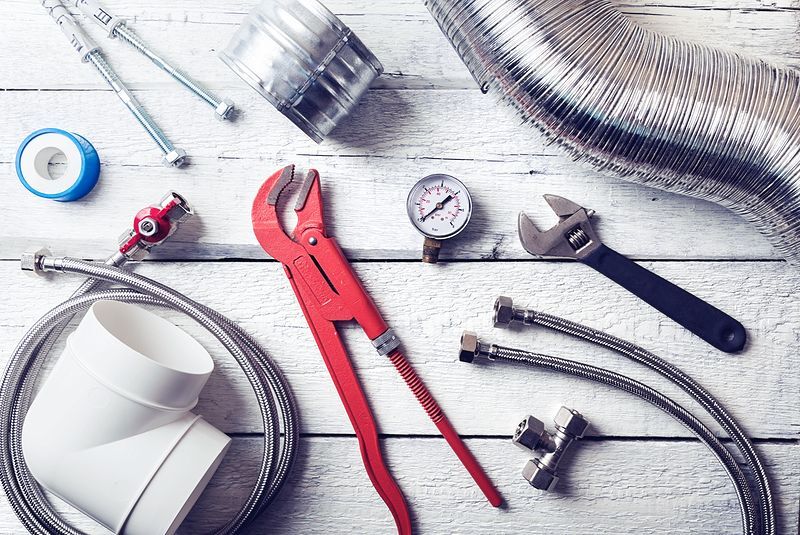Your air conditioner or furnace has been going strong for years, but this year, it’s struggling to work properly. Maybe some rooms are too hot, while others are too cold. Or maybe you’ve had a repair person out to fix it at least once. Should you replace or repair it?
How Do You Know Your HVAC System Needs Maintenance?
How do you know if you need to repair the furnace or repair the air conditioner in your home? Or should you replace them? The first step is understanding whether or not your HVAC system needs maintenance. Here are the common signs of needing maintenance:
- Your HVAC system won’t turn on
- Some rooms are cold, while others are hot
- The house is too humid
- Your HVAC system makes noises when you run it
- Everything is dusty in your house from the furnace or air conditioner
- Your utility bills increase and keep increasing
- You’re spending money on yet another repair
Consider the Age of Your Air Conditioner or Furnace
An HVAC system isn’t usually the first thing people think about replacing when making changes to their home. Most of the time the furnace and air conditioner simply works without you giving it much thought. But air conditioners and furnaces have lifecycles like any appliance, which means that when they’re near the end of the expected lifecycle, you may have to consider updating your HVAC system. Here are the guidelines that ENERGY STAR recommends for replacing HVAC systems.
- Replace air conditioners that are more than 10 years old
- Replace furnaces or boilers that are more than 15 years old
- Replace heat pumps that are more than 10 years old
Consider the Costs of Repairing vs. Replacing
Buying a new HVAC system may seem daunting, but you may be saving money in the long run when it comes to replacing or repairing your system. If the cost of repair is minor, then it makes sense to repair your system. But you should consider the following before repairing rather than replacing the system:
- If repairing the systems is more than 50 percent of the cost of installing a new system, replace your HVAC system with a new one.
- If your utility bills are going up, consider replacing the system to a new ENERGY STAR rated system, which will help you save on energy bills.
- Consider the cost of repairing a system multiple times versus buying a new system. Older systems break down frequently and are less efficient. You are more likely to save money in the long run installing a new HVAC system.
- If your air conditioner uses R-22 freon, replace your air conditioner. R-22 freon is hazardous to the environment and the ozone layer. You should have a more environmentally friendly air conditioner.
Rebates for Replacing Your HVAC System
Some power companies, such as Xcel Energy, will give you rebates for replacing your air conditioner and furnace with energy efficient models. You can see the rebates at Xcel Energy HERE, or contact your local power company to find out what rebates they offer.
Consider the Environmental Impact of Replacing
Replacing your older HVAC systems is a good idea for the environment. Even low-end air conditioner models today use half of the electricity that eight- to ten-year-old air conditioners use. Less energy usage means a cleaner environment. If your air conditioner is still using freon, which has since been banned, you should definitely replace your air conditioner with one that doesn’t use an ozone depleting chlorofluorocarbon.
Air conditioners are now required to operate at 13 SEER, which is the Seasonal Energy Efficiency Ratio. Back in 2006, 10 SEER was the standard, which means air conditioners ran at 10 SEER or below. If you have a 10 SEER air conditioner, you will save 30 percent on electricity bills replacing your air conditioner, because a minimum of a 13 SEER air conditioner is 30 percent more efficient.
Consider How Well Your Furnace or AC is Performing
If your furnace or air conditioner is breaking down a lot, heats inconsistently, or has any of the above symptoms listed above, you should consider replacing over repairing it. If your HVAC system is older than 10 years, you should probably replace it anyway, even if it seems to be working okay. The reason is simple: newer models are more efficient than models from 10 years ago. You will only see more maintenance issues as time goes on and your energy bills are most likely to go up.
Consider Safety
Safety should always be a concern when it comes to whether to replace or repair your HVAC system. Faulty furnaces can produce carbon monoxide, a deadly gas that is odorless. HVAC systems can also spread contaminants like mold spores, dust, bacteria, and more if not kept in good working order. A new air conditioner or furnace, properly installed, will help provide peace of mind.
Deciding whether or not to repair or replace your HVAC system can be a difficult one. If you want to discuss your options with a specialist, we’re here to help. Our network of specialists are people who can work with you to identify the problem and provide a solution. Indoor air quality is important to every home, especially in the colder months.



Recent Comments